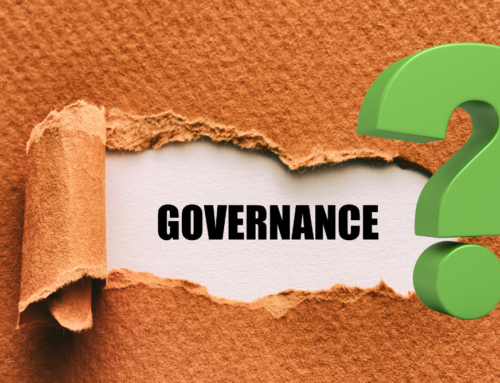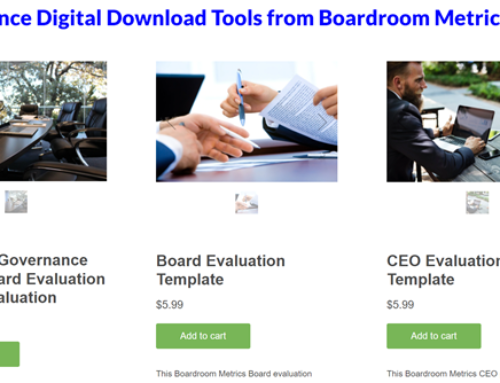Is Your Board of Directors Prepared for the Coronavirus?
Boards of Directors must now prepare for the Coronavirus. Why? Because the first role of the Board is to identify and mitigate risk to the organization.
The four greatest risk factors every organization now faces are:
-
Supply chain disruption due to Coronavirus
Supplies out of Asia (including food, components, autos and technology) are already disrupted and the ripple effects in North America are starting. They will impact organizations and consumers. (Ironically, many of the surgical masks people are hoping will protect them from the Coronavirus are made in Asia.) Without contingency planning, organizations that depend on supplies from abroad will find themselves unable to continue with parts or all of their business.
-
Demand disruption due to Coronavirus
Some big industries are already being disrupted. Travel out of Asia has slowed by as much as 75%. Travel is one of the largest industries in the world. One in ten people work in the business. Airlines and cruise lines are highly leveraged. Even if the Coronavirus doesn’t spread beyond Asia (it already has) the impact of much lower demand may be impossible for some organizations to bear.
-
Labour disruption due to Coronavirus
Labour disruption takes many forms. In its least risky form, it’s employees working from home so they don’t have to congregate at the office. Unfortunately, not all businesses are set up to run well that way.
At it’s riskiest, labour disruption is employees who can’t or won’t do their job anymore because they are infected or are likely to be infected. Front line service workers will be at greatest risk. This includes everyone from coffee shop baristas, flight attendants, and Border Patrol agents to retail store clerks. Sales reps and others who regularly interact with strangers will also be at risk. It will be very difficult for many businesses to continue if labour disruptions are substantial.
-
Financial disruption due to Coronavirus
Financial disruption is the ultimate impact that all organizations may need to plan for. If supplies, demand and labour are negatively impacted, then personal incomes, business revenues, donations and even funding will be impacted. Although some of those losses may be offset by lower costs, careful planning will be required to ensure organizations remain sustainable.
How Does a Board Mitigate Coronavirus Risks?
There are several steps every Board should take immediately to prepare for the Coronavirus:
- First, every Board should ask for a report from the leadership team on the potential threats to the organization caused by the Coronavirus. The minimum checklist for the items to be reported on are included above: supply chain, demand, labour and financial impact. The Board or a Committee of the Board should meet with leadership to review their report, understand what the risk factors are and how severe they are projected to be.
- With the risk factors identified, the Board should also direct the leadership team to prepare plans for mitigating the risks that are serious. It’s common in cases like this to identify degrees of impact or uncertainty, eg worst case scenario, best case scenario, projected scenario. In cases where no mitigation of the risk exists (it’s impossible), plans for dealing with the implications should be developed. These plans could include everything from internal and external communications to staffing and finances. The Board should be fully informed of these plans and it should formally approve the organization’s approach to dealing with the Coronavirus situation.
- Boards of organizations who are required by policy to disclose changes to their business and the projected impact on their results (public companies, some organizations funded by Government, others) should begin working with the management team to understand and communicate what the impact of these risk will likely be.
- Finally, a formal communication process that provides regular updates to the Board on the organization’s Coronavirus status should be instituted immediately. These updates should include situational changes, planning progress and execution results. The Board should be consistently current with the organization’s status regarding Coronavirus.
Boards and the Coronavirus Risk
It is always the Board’s responsibility to make plans that protect the organization and its stakeholders from harm. Until the Coronavirus impact is better understood it is impossible to make conclusions about how good – or bad – the situation may be. As the Coronavirus moves into North America, Boards CANNOT afford to sit on the sidelines and presume that everything will turn out ok. Boards who do that are failing to execute their governance responsibility.
About Boardroom Metrics
Boardroom Metrics was founded over twenty years ago. We focus on Boards and Corporate Governance effectiveness. Our specialties:
- External Board Evaluations. We use customized surveys, interviews and other assessment tools to evaluate how effectively public, private and not-for-profit Boards of Directors understand and execute their Board role.
- External CEO Evaluations. We use customized surveys, interviews and other assessment tools to evaluate the CEO’s performance versus the Board’s expectations, business objectives and personal development goals. CEO Evaluation templates are available for download here.
- Board, CEO and Leadership Team Succession Planning. We provide tools and consulting to help Boards develop criteria and processes for planned and unplanned succession.
- Governance Education, Consulting and Coaching. We speak to/work with Boards, Associations, and other groups on Corporate Governance, the Board’s role, and the processes and tools for executing Corporate Governance effectively.
Boardroom Metrics Contact information:
- Email: [email protected]
- Phone: 416-994-6552
- Website: https://www.boardroommetrics.com/
- LinkedIn: linkedin.com/company/boardroom-metrics








Leave A Comment